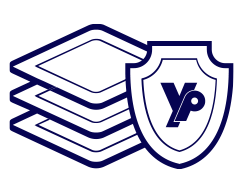The Compliance & Risk Director is responsible for ensuring adherence to regulatory requirements, minimizing operational risks, and safeguarding the integrity and security of financial transactions. He/She manages regulatory compliance, operational risks, and internal controls within the company, contributing to the organization’s stability, reputation, and long-term success.
The Compliance & Risk Director shall have the following major duties and responsibilities:
- 1. Stays abreast of relevant regulations and industry standards governing payment processing, such as AML (Anti-Money Laundering), KYC (Know Your Customer), and other applicable laws;
- 2. Interprets regulatory requirements and ensure the organization’s policies, procedures, and practices are compliant;
- 3. Develops and maintains compliance frameworks and procedures to mitigate regulatory risks;
- 4. Identifies, assesses, and prioritizes operational risks associated with payment processing activities, including fraud, cyber threats, operational disruptions, and regulatory non-compliance;
- 5. Develops risk management strategies and controls to mitigate identified risks to an acceptable level;
- 6. Conducts risk assessments and scenario analyses to evaluate potential impacts on the company’s operations and financial health;
- 7. Establishes and maintains internal control mechanisms to ensure the integrity, accuracy, and reliability of payment processing systems and financial data;
- 8. Designs and implements controls to prevent fraud, errors, and unauthorized activities;
- 9. Regularly reviews and assesses the effectiveness of internal controls and make recommendations for enhancements as needed;
- 10. Monitors ongoing compliance with regulatory requirements and internal policies through periodic reviews, audits, and assessments;
- 11. Prepares and submits regulatory reports and filings accurately and timely;
- 12. Provides regular updates to senior management and stakeholders on compliance status, emerging regulatory issues, and remediation efforts;
- 13. Develops and delivers training programs to educate employees on regulatory requirements, compliance obligations, and risk management practices;
- 14. Fosters a culture of compliance and risk awareness throughout the company by promoting ethical conduct and accountability;
- 15. Develops incident response plans and procedures to address security breaches, data breaches, and other compliance incidents promptly;
- 16. Leads investigations into compliance breaches, security incidents, and other adverse events to identify root causes and prevent recurrence;
- 17. Coordinates with legal counsel, law enforcement, and regulatory authorities as necessary during incident investigations and reporting;
- 18. Assesses the compliance and risk posture of third-party vendors and service providers involved in payment processing activities;
- 19. Establishes due diligence processes for vendor selection, contract negotiation, and ongoing monitoring to mitigate third-party risks effectively;
- 20. Develops and maintains business continuity and disaster recovery plans to ensure uninterrupted operation of payment systems in the event of emergencies or disruptions;
- 21. Testes and updates contingency plans regularly to address evolving risks and changing business requirements;
- 22. Sets performance goals and conducts regular performance evaluations to ensure the team’s effectiveness and efficiency.
Qualification/Experience
Education:
Bachelor’s degree in law, finance, business administration, or a related field.
Experience
- * At least 5 years of experience in compliance, regulatory affairs, or risk management roles, with at least 2 years in a leadership. Direct experience in digital payments, fintech, banking, or financial services is essential.
- * Strong foundation in operational, financial, and regulatory risk assessments, with an ability to design, implement, and oversee risk management frameworks.
- * Hands-on experience in implementing AML, fraud prevention, and customer due diligence programs.
- * Skills in leading and coordinating responses to compliance breaches, cybersecurity incidents, or other critical risk events.
- * Skills in documentation and regulatory reporting, including preparing comprehensive reports for regulatory bodies, internal audits, and board.




